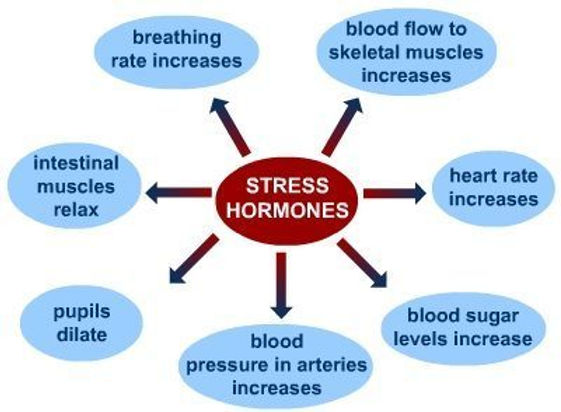Zzartemis, my wife frequently has headache, but not migraine. She occasionally has breathing or digestive problems. She is also very sensitive to chemicals. So you raised a good point about allergies. Thank you for that! We did discover during diet experimentation that she doesn't tolerate walnut. I think in the next visit to the GP, we will ask for a food allergy blood test.
Hey there
@Bobo08 thanks for your response. I didn't want to mention this unless you gave a yes to any of my questions. You can ask for allergy tests, but if they are negative and she continues with the symptoms, she may be histamine intolerant (HIT). This is a genetic mutation and darn hard to figure out, unless you know what to look for. It is an impaired ability to clear excess histamine from the body and I have it.
HIT runs in families and occurs in about 1% of the population. However, I do believe a greater percentage are suffering from symptoms due to medicines taken and other dietary and/or environmental factors. I cannot take most meds with the exception of anti-histamines...even then carefully as a last resort because the body will continue to pump histamine without clearing...there is a rebound effect from use. And many medications are either histamine raising or creating. The same goes with foods which I will get to.
For years I had strange symptoms and allergy like reactions, sometimes thinking I was getting sick, but never getting but never getting sick in the end. Also things like bloody noses, stomach aches, occasionally passing out, dizziness, bouts of eczema, multiple miscarriages, and many other symptoms. For many years these were more like a nuisance than something full blown. Until my early 50s, when I suffered physical and emotional trauma from violent attacks.
You mentioned your wife's low threshold for stress. Has she had a trauma or severe injury or perhaps witnessed anyting traumatic? Because HIT's physiological symptoms, some of them, can be very similar to ptsd, especially in the sense of overwhelm.
HIT is hard on the adrenals. It tends to give one a type A personality, very driven. Others here were wondering if she had adrenal fatigue, why would her cortisol levels be relatively high? They would be at higher levels because cortisol squashes histamine; so her body here would be trying to bring balance. I also noticed her cholesterol levels were at upper limits and there would be a reason for this also; adrenal hormones are manufactured from cholesterol. So, this would be another area where the body was trying to bring balance. In the earlier stages, cortisol levels will remain high until adrenals are so taxed that hormones are not produced at normal levels. In comes severe fatigue. She will also most likely have low blood pressure and this could/would be the cause of dizziness and or fainting. If so, here's a time when salt will be good for her. I use Celtic salt.
You cannot really test for histamine intolerance; but you can use a food elimination test. You can find lists of histamine Foods online, but look up a few because they tend to differ, and none are all inclusive. For years I was eating things I thought good for me like: spinach, citrus fruits, pineapple, tomatoes, bananas, many types of nuts including walnuts, yogurt and other fermented foods, the list goes on. All these Foods are on high histamine lists. Things like yogurt and kefir contain organisms that increase histamine levels. If she has histamine intolerance she will do better with soil type organisms, like those in baby probiotics. Other Foods would be: aged Meats, canned meats and fish, beer wine and alcohol, and leftovers. But please do check the list for more.
I said, HIT tends to run in families where you will see asthma, hay fever, or other allergies. Actually one would call them pseudo allergies because the effects are not seen until hours after ingestion, sometimes not until the next day. Also, what bothers you one day may not at another time. This would depend on how high histamine levels are at the time of ingestion. Other factors which can raise histamine levels are any type of stress. This stress could be emotional or physical. Types of physical would be pushing past endurance, extreme hot or cold temperatures, loud noises, shocks of any type, and so on.
The symptoms of histamine intolerance are many and varied. It can attack any part of the body systems. Respiratory, severe pain, skin, stomach, intestines, even the brain causing inability to focus, irritability, or what is called brain fog. I have also suffered bouts if temporary amnesia. When my levels are high my complexion is very rudy and my palms are red, pupils can be dilated.
If you do find compelling evidence towards histamine intolerance, I will advise you that I had absolutely no cooperation with doctors on this issue. I did years of research on my own and none would look at it. If you are in Europe, you may find doctors that are familiar with it. A functional medicine doctor would also be a good choice. However, they are expensive and your insurance may not cover tests they run or even the visit itself. I could not afford them so I used and experimented with many supplements to help me and they did up to a point. What I found was that I could go no further and was at what you would call your Baseline. I hope this helps in your search and if it is decided that she is histamine intolerance please feel free to contact me, ping me in a post and I will see.


